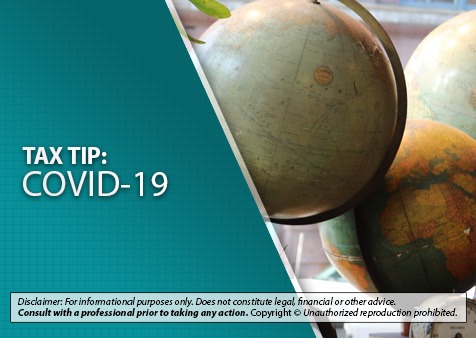As part of its COVID-19 (coronavirus) tax relief package, the IRS is offering waivers of certain tax rules for individuals and businesses affected by coronavirus-related travel disruptions. Under standard IRS policies, anyone who spends time within the U.S. on a certain number of days during the tax year (for example, 31 days for most nonresident aliens) must pay taxes as a U.S. resident. This rule is known as the “substantial presence test.” Similarly, American taxpayers living in foreign countries must spend a specified number of days in their claimed country of residence in order to exclude foreign income from U.S. taxation.
Key IRS tax residency rules adjustments for 2020 include:
- For a person who visited the U.S., up to 60 consecutive days of presence in the U.S. may not be counted when determining if the person meets the “substantial presence test” for taxation as a resident. In most cases, this “COVID-19 Emergency Period” must have begun on or after February 1, 2020.
- For residents of foreign countries, certain days spent away from their home countries may not jeopardize their national residency status for the purpose of excluding foreign income from U.S. taxation.
- When performing calculations to determine if they are “engaged in a U.S. trade or business” for tax purposes, some businesses may exclude up to 60 consecutive days of conducting business activities within the U.S.
You may only claim these exemptions for days on which your personal or business activities took place in an unplanned location, as a result of travel disruptions caused by the COVID-19 pandemic. A tax advisor can help you determine whether your travel or business activities qualify for an exemption, and how the exemption rules affect your U.S. tax status.



